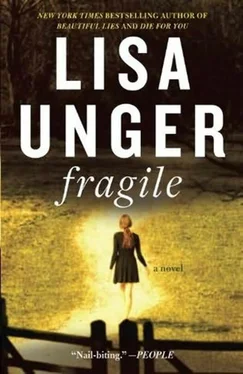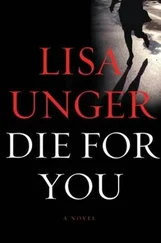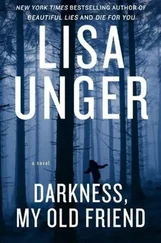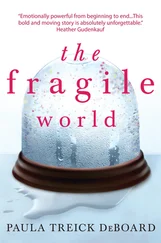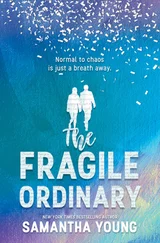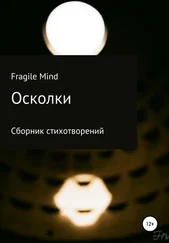Maggie found herself somewhat guiltily scrolling through her son’s in-box, reading messages from friends and acquaintances. There was nothing that caused her concern. All the messages were from friends she knew well, concerning homework or band gigs, gossip, plans for the weekends. Even the notes between Ricky and Charlene were pretty PG-rated, almost, she thought, pointedly so. She’d always warned him against considering his online activities private. He’d obviously taken her advice to heart. Or, knowing that he’d given away his password, he’d cleaned up his in-box.
At the bottom of the list of mutual friends, she saw an image she didn’t expect: Marshall Crosby. She clicked on the picture, a dark photo, obviously taken in poor lighting by his computer camera. He looked slouched, and ghoulish around the eyes; the room behind him was a mess of books and tossed clothes, stacks of video games, soda cans in a line along a dresser, rock posters covering the wall. As his page loaded, she saw that most of the fields, like favorite books and films, were blank. Even the profile area glowed white, empty of the details she expected to see. The only area where he had seen fit to enter information was the status bar, and what he’d written there, thirteen minutes earlier, caused a cold finger to trace Maggie’s spine: Marshall thinks bad people should be punished.
In Maggie’s memory, it had snowed for days. But it hadn’t really. In fact, there was just the initial light snowfall that coated Sarah’s newly dead body so that when Chief Crosby first saw her, he thought she was a fallen branch, so thin and still and dark was her form. The days that followed were characterized by freezing precipitation-sleet, a light rain-the tentative spring abandoning The Hollows as the shock of it all settled and everyone found themselves shuffling stunned and stricken from assembly to counseling, if they wanted it, then to the horrifying open-casket wake and grim burial.
Maggie found that she could hardly take it in; none of it seemed quite real. Even now, she remembered it only in snapshots-Sarah’s mother collapsing at her daughter’s grave, her own mother clinging to her in a way she never had before or since, maintaining a grip on wrist or shoulder or elbow for days, it seemed. She remembered Sarah stiff and bloated in her casket, a waxen image of herself, not a girl filled with music, not a girl at all. The mortician had filled in the cuts on her face with some thick kind of makeup, but still you could see them there, a faint spiderweb of lines, like the cracks in the face of a porcelain doll that had been broken and glued back together. Her face looked painted on, hideous, a death mask. Maggie could still hear Sarah’s mother wailing if she thought on it, could feel the sound of it reverberating in her own chest.
She’d been younger than Ricky was now, in her sophomore year at Hollows High. She’d been sheltered, her schedule strictly maintained by Elizabeth. Home right after school unless she had an extracurricular activity, have a snack and relax, homework, then play with friends or watch television. Dinner was always at 6:30, bedtime no later than 9:00. She’d railed against all the rules, felt smothered by her mother’s constant questions. Rebelled by doing things to her appearance, like dyeing her hair, getting multiple piercings in her ears. Elizabeth had reminded her of this, not without a tiny bit of glee, when Ricky started his descent into gothic punk. Maggie realized she was every bit as on top of Ricky as Elizabeth had been on top of her, constantly talking, asking questions, maintaining routine. Well , she thought, there it is. I’ve become my mother .
“Do you think you would have been able to walk out the door after a fight?” her mother was saying as they drove to the meeting. She looked as tiny as a child in the huge passenger seat of Maggie’s SUV. Again, the heat was cranking; Elizabeth had always hated the cold. “That I would just let you walk off and not go after you? Ridiculous.”
“I know.” Maggie had called her mother after she learned about the meeting, and Elizabeth wanted to attend. She’d phoned Ricky at the record shop, and his boss had agreed to let him go so that he could be there, too. He was planning to meet them at the school.
“That girl,” Elizabeth said. Maggie knew she was talking about Melody, not Charlene. “There was always something about her.”
“She’s not a girl anymore, Mom. She’s a mother whose daughter is missing. She needs our compassion and our help.”
Elizabeth snorted. “You’re such a shrink, Magpie,” she said, mock-crotchety.
“Mom,” Maggie chastised, but she felt a smile turning up the corners of her mouth.
Her mother took a tissue from her purse and blew her nose.
“What do you remember about that time?”
“What time?” her mother asked, not turning to look at her.
“You know what I’m talking about,” Maggie said, annoyed that her mother was being purposely obtuse. She always did that when she didn’t want to talk about something.
“I knew you’d bring that up.”
“How could it not come to mind?”
“I remember everything about it. Every detail. Every ugly minute. It was the worst thing that ever happened to this town.”
Maggie waited for her mother to go on. Then, “They say your memory fades when you get older. I wish it were true. You forget things like where you put your keys or your glasses, you space out on doctors’ appointments. But the bad stuff stays, Maggie. The old things you’d rather forget, those memories move closer, grow more vivid.”
“Like what? What do you remember?”
They were stopped at a light. It changed to green without Maggie noticing until someone behind them leaned on his horn. They both jumped a little, and Maggie lifted a hand in apology, moved forward.
“Everyone’s in a big rush,” said Elizabeth.
Maggie figured that her mother was just going to ignore her question, that she’d have to press. And she was prepared to press. She wanted to talk about Sarah, for some reason. Since Melody had brought it up, she hadn’t been able to stop thinking about it. Does Jones ever talk about it? Melody had asked. Why had she wanted to know that? It was such a strange question.
Maggie was about to push Elizabeth to answer, but her mother started talking.
“Of all the terrible feelings and awful memories from that time, you know what bothers me the most?” she said.
“What’s that?”
“I never believed that he killed her.”
Something about the way she said it gave Maggie a strange little jolt of dread.
“He confessed, Mom,” she said.
“I know he did,” Elizabeth answered, her voice flat. She cleared her throat and looked down at her lap. She smoothed out her skirt with two flat palms, a determined little sweep of her hands; it was a familiar gesture to Maggie, something her mother did when she wanted to avert her gaze.
“You never told me this.”
“What’s to tell? It’s just a feeling. I knew that boy. I just never did believe he had it in him. It’s always bothered me.”
“If not him, then who?”
Elizabeth released a breath. “Now, the answer to that might just be what kept me from asking the question in the first place.”
Maggie didn’t say anything, taking in her mother’s words.
There was never any doubt that Tommy Delano killed Sarah. There had always been something wrong with him. Everybody said so. Since he was a boy, he’d been unnaturally quiet, occasionally prone to blank but terrifying rages. As an adult, he had often been seen slinking about the garage where he worked, lurking in corners, watching in that quiet way he had. Or he might have been spotted walking aimlessly through town, or hanging around the arcade or the pizzeria where the younger kids gathered. When people mentioned him, they used words like “creepy,” or “odd.” They said he had a way with cars, though. That he was a talented mechanic, a tireless worker. They said all those things about him, and so they were all true.
Читать дальше
